Hanoi: Hang Bong ward officials say the train street coffee shop has brought many positive changes but poses a potential risk of accidents.
Responding to VnExpress , Mr. Dinh Ba Hung, Vice Chairman of the People's Committee of Hang Bong Ward (Hoan Kiem, Hanoi), who directly manages the Phung Hung train street area, said that since 2019, some households have realized that this area has the potential to attract tourists, so they have opened many coffee shops.
"Their lives have changed positively thanks to this neighborhood," Mr. Hung said, adding that before the railway coffee street was built, the income of people in this neighborhood was among the lowest in the ward. Many people worked as manual laborers, while others came from the countryside to live here and find work in Hanoi.
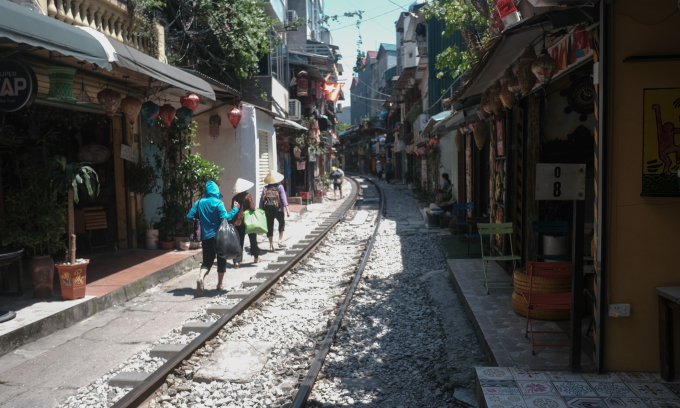
Phung Hung train street on the morning of August 31.
Thanks to the coffee business along the railway, the neighborhood has become more bustling and people's lives have improved. The culture and civilization of the neighborhood have also changed as residents have come into contact with domestic and foreign tourists. Life has become more prosperous, people have also decorated their houses, making the neighborhood look more beautiful, Mr. Hung said.
However, Mr. Hung said that this does not mean that the neighborhood is safe because if just one drunk tourist runs onto the train tracks, it is hard to imagine what will happen. But he also admitted that since 2017, Hang Bong ward has not recorded any cases of tourists being in danger on the train street. People are conscious, remind themselves, and manage visitors when the train approaches.
Currently, the whole neighborhood has 12 households selling coffee and none of them have a food business license. Previously, some households were granted one but the district revoked it. One household was fined 7.5 million VND, the others were ticketed. They knew they were not allowed, but for the sake of making a living, they did it regardless.
Hang Bong Ward has arranged for a checkpoint, three people per shift, not allowing visitors to enter the train street area. However, this area has many small alleys leading to other streets, so the owners still take visitors in without going through the checkpoint. When asked, many people said that they were "acquaintances or relatives" from afar, not visitors.
Mr. Hung said that the ward's force is quite "thin" but there is nothing more that can be done because there are many other "hot spots" in the area that need protection. There are few staff and it is impossible to be on duty 24/7 at the railway street, so businesses often take advantage of the time when the officers change shifts or are not present to openly bring customers in.
During the "prosperous" years of the railway street, the contributions of households to the ward's annual funds were relatively good. Now, the contributions have decreased a lot because they cannot do business, said Hung ward vice chairman.
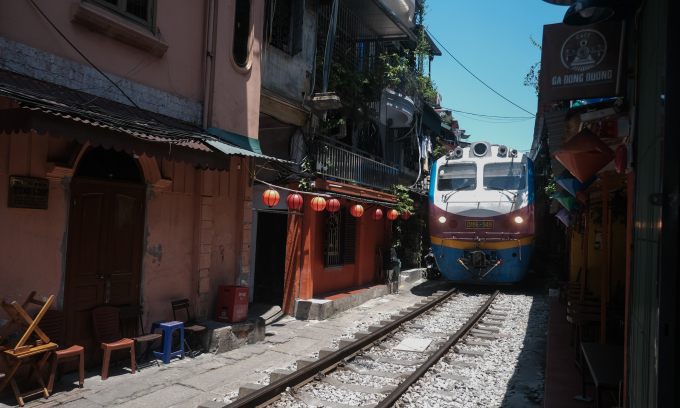
The train passed through the residential area at 11:50 on August 31.
Up to now, the people in the Phung Hung train street coffee area always hope that the government will create favorable conditions for them to continue their business. Not only the ward, they also petitioned the district and many other places.
Despite sympathizing with the residents, the managers could do nothing else. Mr. Hung said they had considered installing barriers in front of people's houses to ensure safety, so that guests could still sit inside. However, the distance from the house's doorstep to the edge of the railway was too narrow, only about 1.5 meters; some places were 2 meters wide.
"With this width, it's difficult for two motorbikes to pass each other, let alone add a barrier," he said.
Mr. Hung said he had heard many experts talk about managing the railway area instead of banning it and letting people operate spontaneously. However, the ward's viewpoint is "to follow the district's instructions and comply with the law". In the future, if the city or district has a new policy to remove obstacles in this area, Hang Bong ward will report on the safety plan later.
"Business is a personal matter and cannot affect railway safety and security. In the immediate future, we will tighten management and prevent illegal acts in this area," said Mr. Hung.
On the morning of August 31, according to the reporter's records, the entrance and exit points of the railway area were blocked by police and militia. Many tourists wanted to enter but were asked to leave, and could only stand outside to take photos or go to the railway area in Dien Bien ward (Ba Dinh district) on the opposite side.
Responding to VnExpress , Ms. Hoang, the owner of a coffee shop at the beginning of the train street, said she "felt it was unfair" that the Dien Bien train street was still bustling while this side was banned. She said the people in this train street were the poorest in the ward, their lives only depended on a few cups of coffee sold to tourists.
After two years of running the coffee shop, Ms. Hoang’s family finally had the money to renovate the kitchen to make it more spacious and cleaner. Before that, due to difficult conditions, her family still used a wood stove and a dilapidated toilet with a squat toilet. She said that on stormy days, the whole family could not cook anything because they had to use the wood stove outside.
"Since this street was built, our life has been a little less miserable, but now it's banned. The whole neighborhood is so beautiful, how much money did the people invest?", said Ms. Hoang.
Ms. Lan, another shop owner who has lived in the train street since 1989, said that this area used to be "really shabby". The first part of the street, which borders Phung Hung, had needles lying on the tracks. The middle part was mainly inhabited by tenants, so clothes were scattered all over the small street. Since Western tourists started coming to take pictures, many new houses have begun to renovate and add more floors to serve customers.
Admitting that she also deliberately circumvented the law to smuggle customers in "for food and clothing", Ms. Lan said that the actual number is not that significant because Western customers do not like to go illegally. Even though the section of the railway street on Hang Bong ward is more beautiful, they still choose to go to the opposite side in Dien Bien ward. Many Chinese customers also come here, but they will "shake their heads" if asked to go through a side street.
"Business is so unstable, I don't know how to live," Mrs. Lan said dejectedly and slammed the door.
Tu Nguyen
Source link


![[Photo] Hundred-year-old pine trees – an attractive destination for tourists in Gia Lai](https://vstatic.vietnam.vn/vietnam/resource/IMAGE/2025/4/17/25a0b7b629294f3f89350e263863d6a3)
![[Photo] Warm meeting between the two First Ladies of the Prime Ministers of Vietnam and Ethiopia with visually impaired students of Nguyen Dinh Chieu School](https://vstatic.vietnam.vn/vietnam/resource/IMAGE/2025/4/17/b1a43ba73eb94fea89034e458154f7ae)
![[Photo] President Luong Cuong receives Kenyan Defense Minister Soipan Tuya](https://vstatic.vietnam.vn/vietnam/resource/IMAGE/2025/4/17/0e7a5185e8144d73af91e67e03567f41)
![[Photo] Prime Minister Pham Minh Chinh and Ethiopian Prime Minister visit Tran Quoc Pagoda](https://vstatic.vietnam.vn/vietnam/resource/IMAGE/2025/4/17/18ba6e1e73f94a618f5b5e9c1bd364a8)
![[Photo] President Luong Cuong receives UN Deputy Secretary General Amina J.Mohammed](https://vstatic.vietnam.vn/vietnam/resource/IMAGE/2025/4/17/72781800ee294eeb8df59db53e80159f)
![[Photo] President Luong Cuong receives Lao Prime Minister Sonexay Siphandone](https://vstatic.vietnam.vn/vietnam/resource/IMAGE/2025/4/17/337e313bae4b4961890fdf834d3fcdd5)


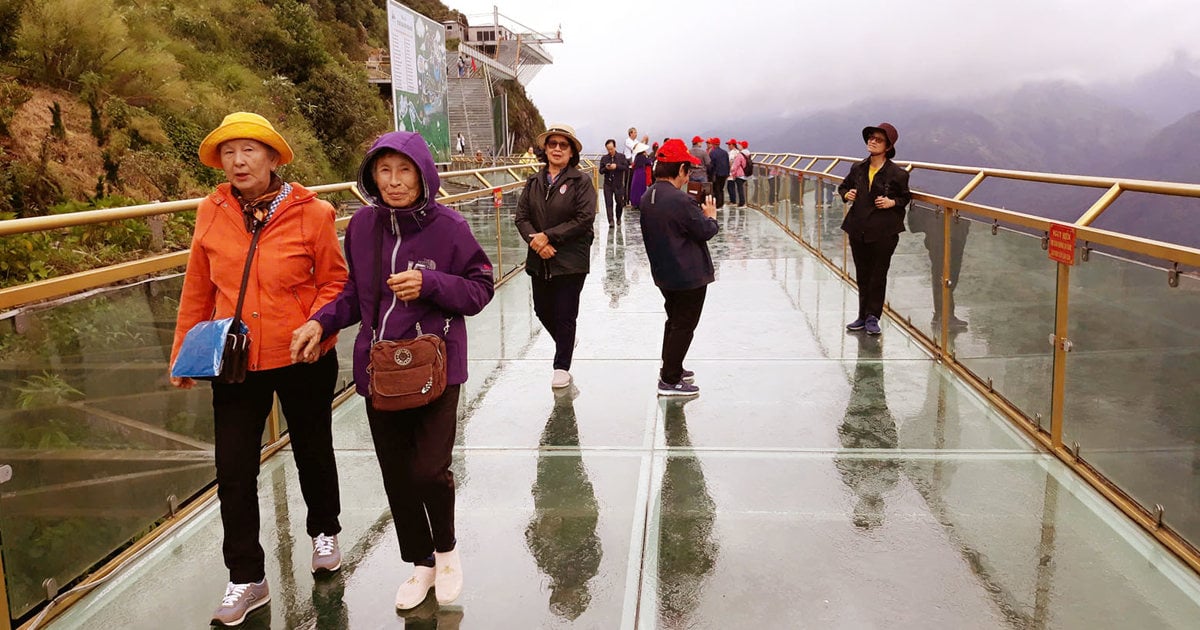





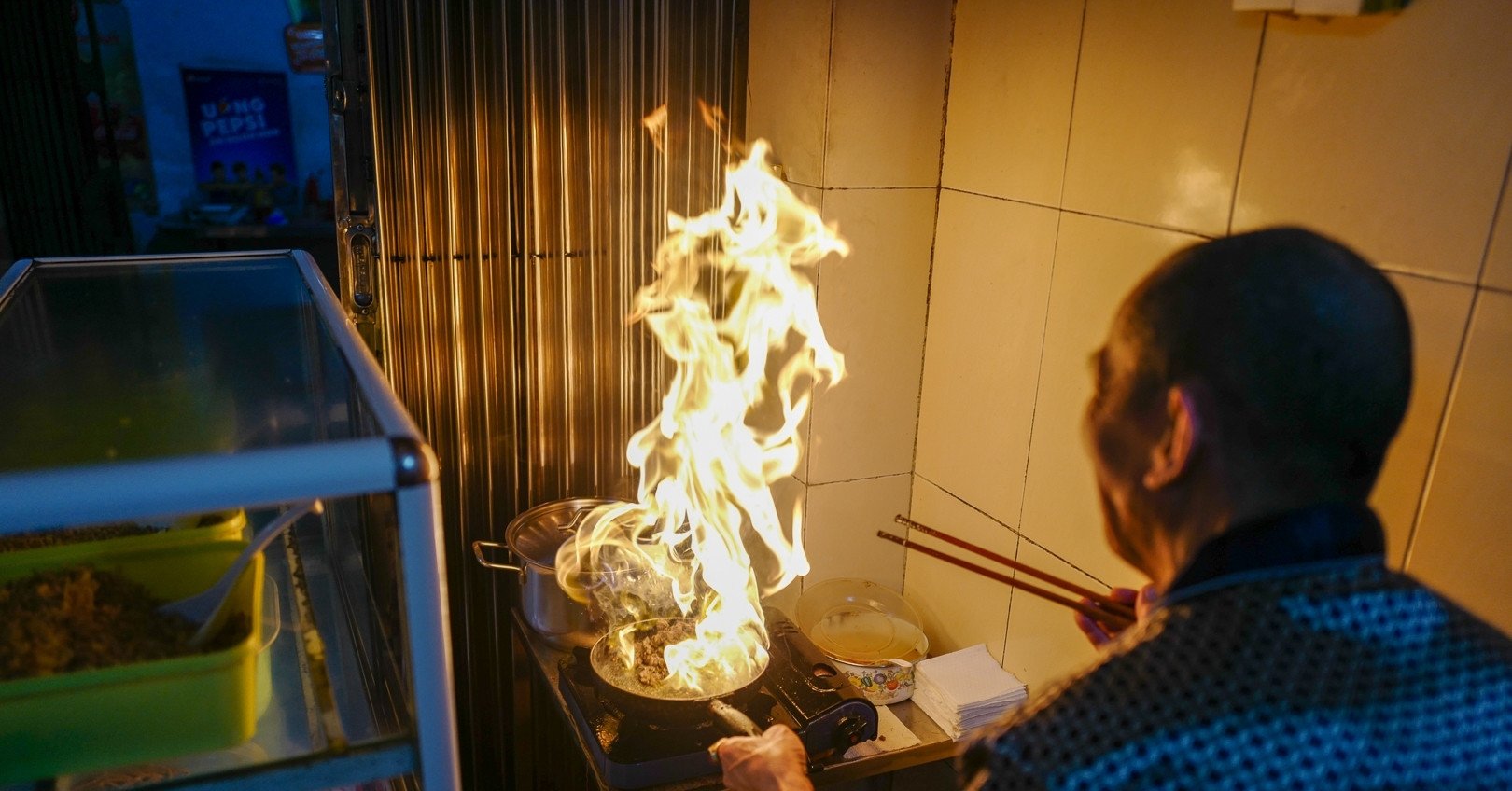




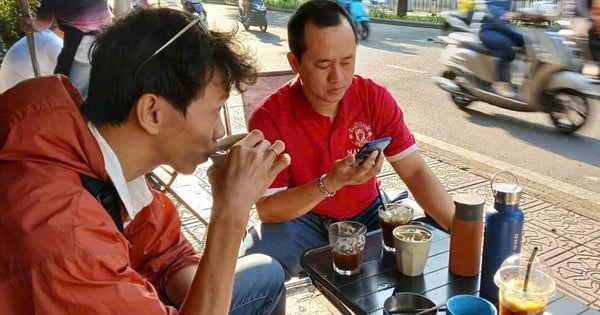




















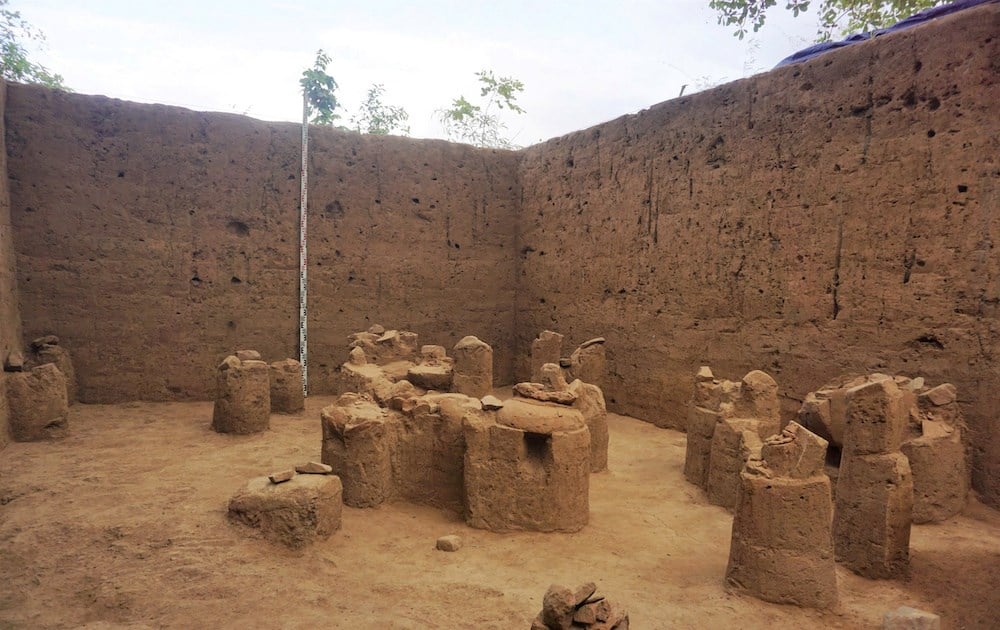



















![[Video] Viettel officially puts into operation the largest submarine optical cable line in Vietnam](https://vstatic.vietnam.vn/vietnam/resource/IMAGE/2025/4/17/f19008c6010c4a538cc422cb791ca0a1)












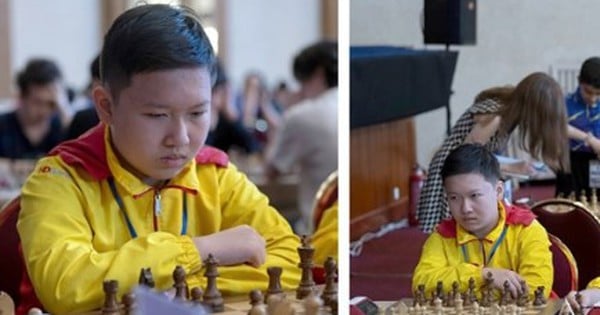

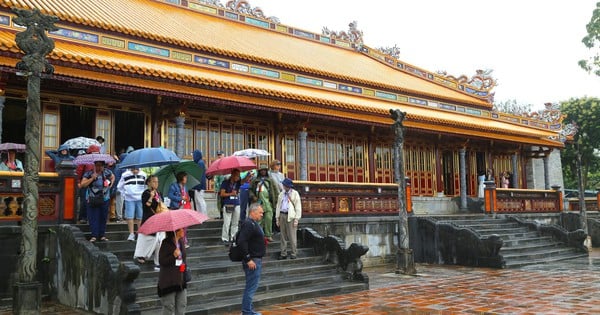

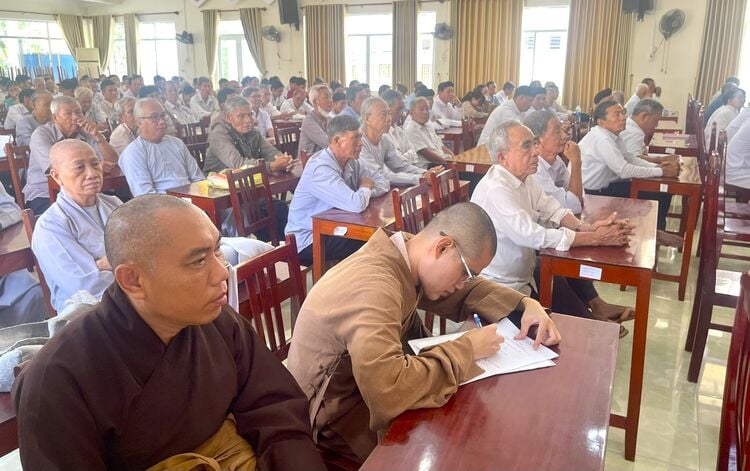


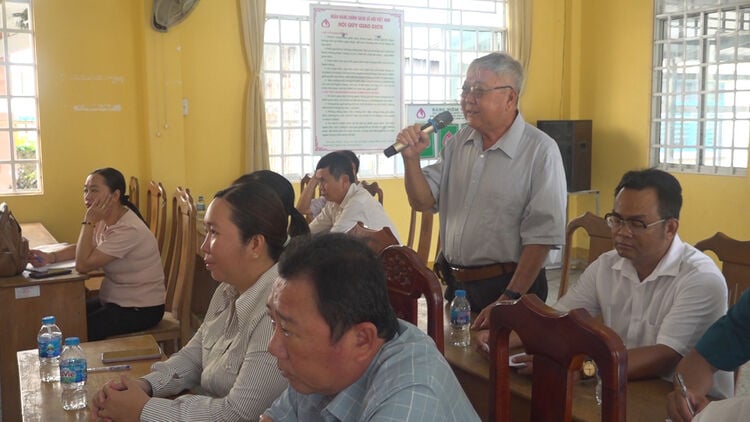
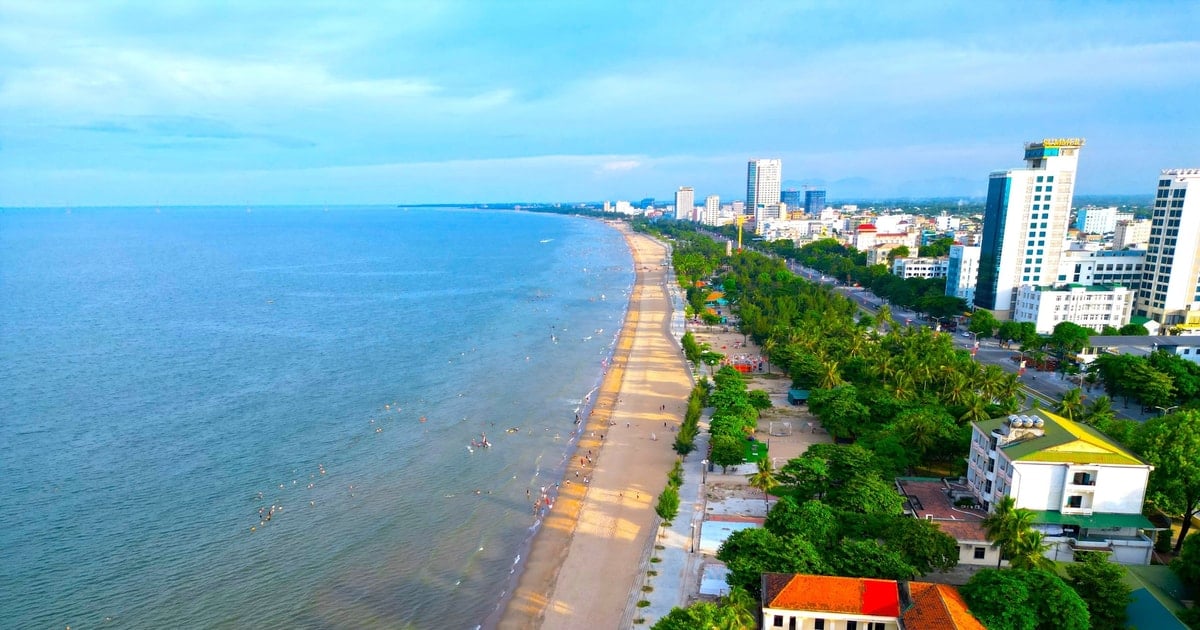



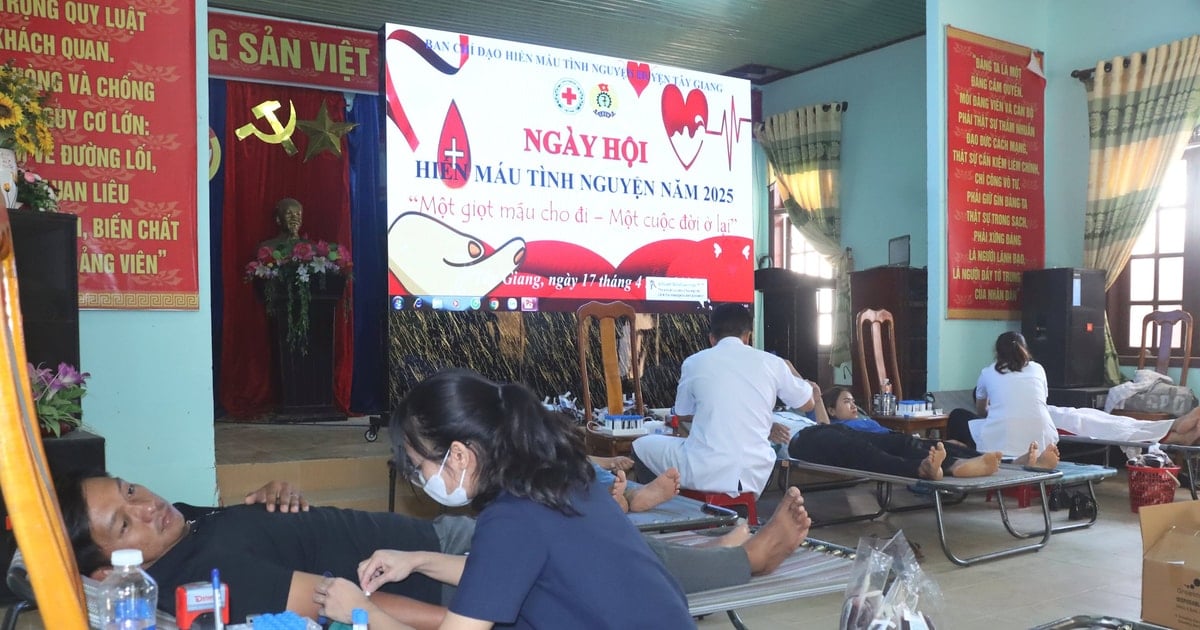












Comment (0)